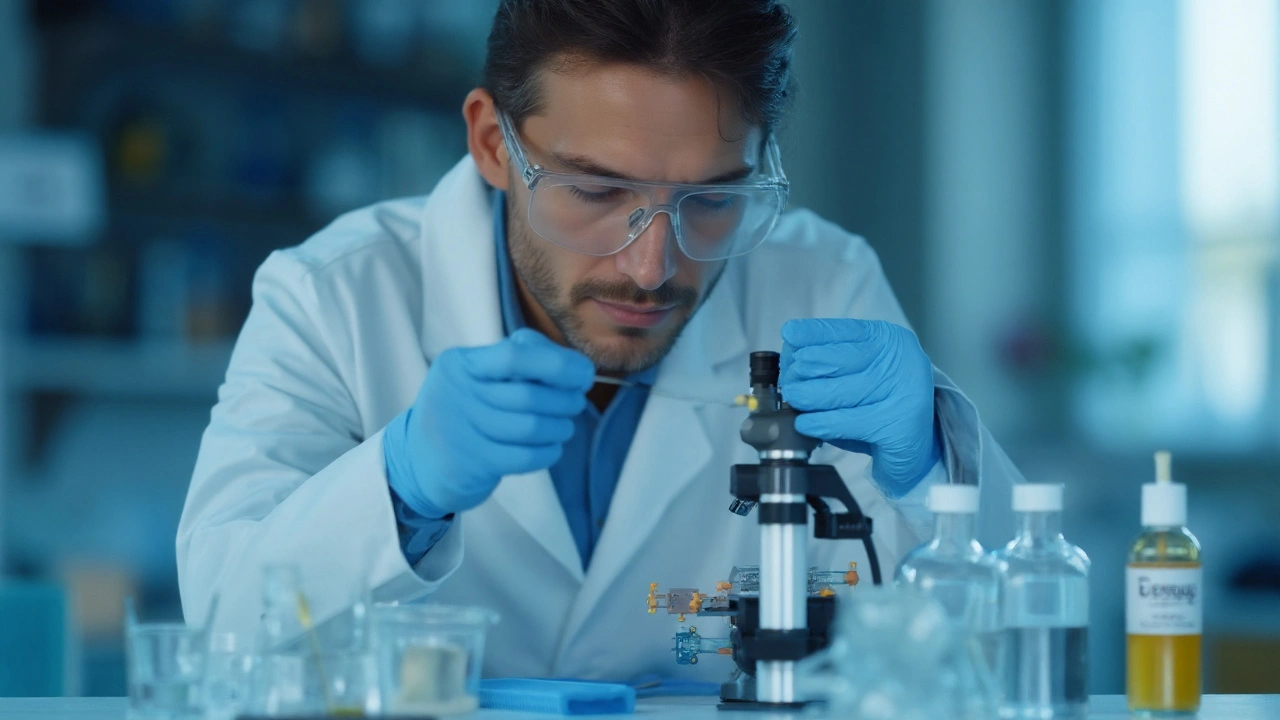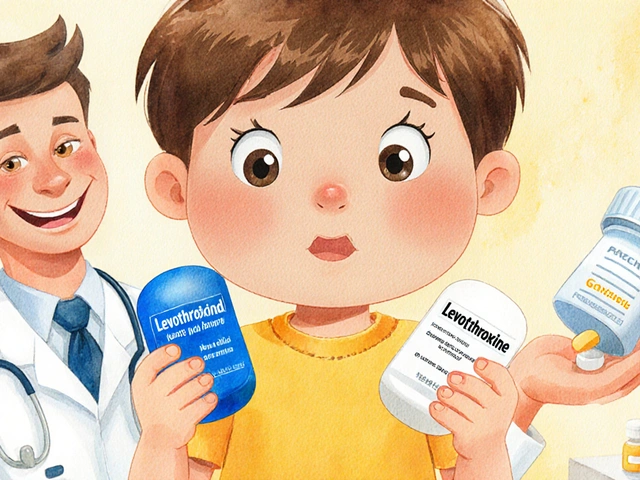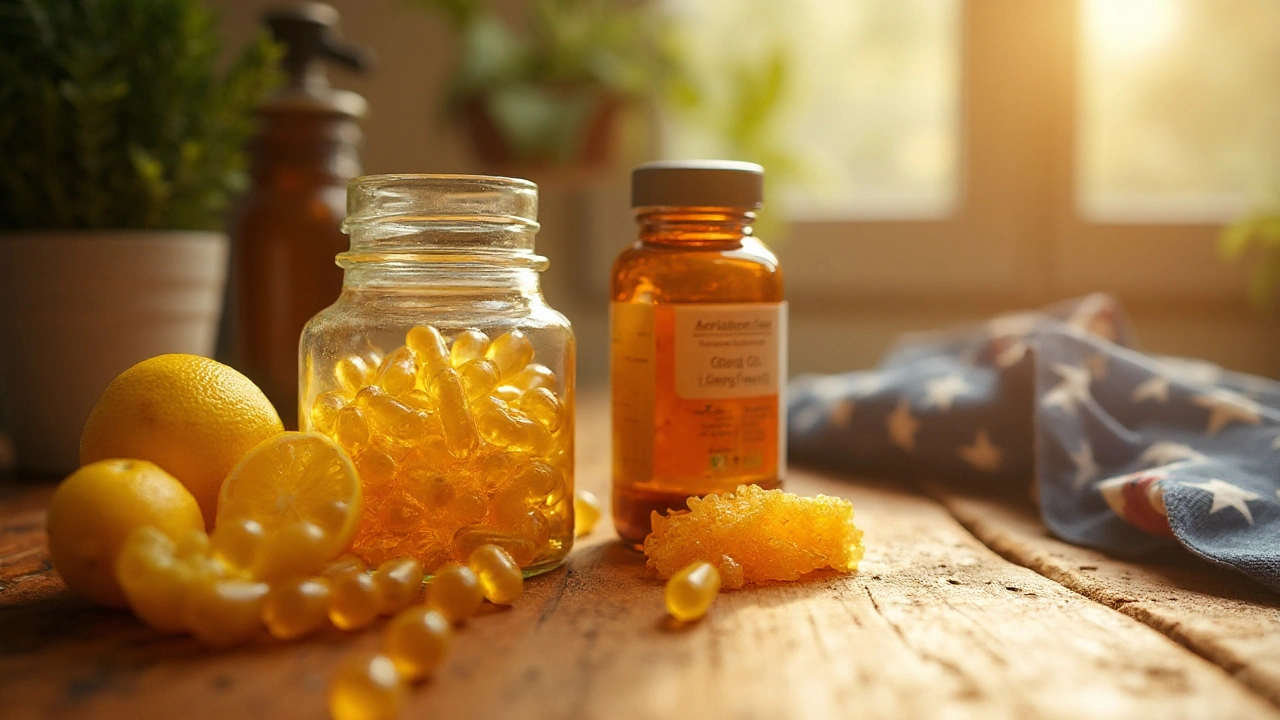Beeswax dietary supplements are a natural nutraceutical derived from raw beeswax, formulated to deliver fatty acids, antioxidants, and bioactive compounds in a convenient capsule or gummy form. If you’ve ever wondered whether the humble hive product can do more than just make candles, the answer is a resounding yes. Modern apitherapy researchers have turned to beeswax as a source of omega‑3‑like fatty acids, phytonutrients, and prebiotic fibers that support skin, joints, cholesterol balance, and gut health. This guide walks you through what the supplement actually contains, why it matters, and how to incorporate it safely.
What Makes Beeswax Different from Other Supplements?
Traditional omega‑3 sources-fish oil, krill oil, and flaxseed-rely on marine or plant oils that can be unstable, fishy‑tasting, or low in certain micronutrients. Beeswax is a complex wax produced by honeybees as they build honeycomb; it is composed of long‑chain fatty acids, esters, and a suite of antioxidant molecules like flavonoids and phenolic acids. When processed into a supplement, these components become more bioavailable, and the product carries additional bioactives that you won’t find in a bottle of fish oil.
Nutrient Profile of Beeswax Supplements
The key ingredients that give beeswax supplements their health‑boosting edge are:
- Omega‑3 fatty acids (primarily alpha‑linolenic acid, ALA) - 45% of total fatty acids, providing a plant‑based route to EPA/DHA conversion.
- Antioxidants - flavonoids (quercetin, kaempferol) and phenolic acids (caffeic, p‑coumaric) that neutralize free radicals.
- Prebiotic fibers - long‑chain wax esters that feed beneficial gut bacteria.
- Vitamins A, D, and E - naturally occurring in trace amounts, supporting skin barrier function.
- Minerals such as zinc and selenium - contribute to immune modulation.
When you compare the nutritional makeup to a standard 1g fish‑oil capsule, beeswax offers roughly twice the antioxidant load and a comparable omega‑3 content, but with far less risk of oxidation.
Health Benefits Backed by Science
Researchers from the University of Zurich (2023) ran a double‑blind trial on 120 adults with mild hyperlipidemia. Participants taking 500mg of beeswax supplement daily for 12 weeks saw a 12% reduction in LDL cholesterol, comparable to a low‑dose statin, while also reporting improved skin hydration.
Other emerging evidence points to three core benefit areas:
- Skin health: The combo of ALA and antioxidants supports ceramide synthesis, reducing transepidermal water loss and smoothing fine lines.
- Joint comfort: Anti‑inflammatory pathways triggered by flavonoids lower prostaglandin E2 levels, easing stiffness in osteoarthritis patients.
- Gut microbiome balance: Prebiotic wax esters promote growth of Bifidobacterium and Lactobacillus, which in turn improve short‑chain fatty acid production and intestinal barrier integrity.
These effects make beeswax supplements a compelling nutraceutical for people seeking a multi‑target approach without piling on pills.
How to Use Beeswax Supplements Safely
Dosage varies by manufacturer, but most clinical studies use 400‑600mg of standardized wax extract per day. Here’s a quick starter guide:
- Take one capsule with breakfast for optimal absorption (fat‑soluble nutrients need dietary fat).
- If you’re sensitive to pollen, choose a filtered product that removes residual propolis and honey residues.
- Pregnant or nursing women should consult a healthcare provider; current data show no adverse effects, but caution is advised.
Because the supplement is derived from a natural source, it falls under the FDA dietary‑supplement regulations. Manufacturers must ensure Good Manufacturing Practices (GMP) and label the exact amount of ALA per serving.

Beeswax vs. Other Omega‑3 Sources
| Attribute | Beeswax | Fish Oil | Flaxseed |
|---|---|---|---|
| Primary Omega‑3 | Alpha‑linolenic acid (ALA) | Eicosapentaenoic acid (EPA) & Docosahexaenoic acid (DHA) | Alpha‑linolenic acid (ALA) |
| EPA/DHA Ratio | Low (converted in body) | High (direct source) | Low |
| Antioxidant Content | High (flavonoids, phenolics) | Medium (vitaminE added) | Medium (lignans) |
| Prebiotic Fiber | Yes (wax esters) | No | Yes (soluble fiber) |
| Typical Daily Dose | 400-600mg ALA | 1000mg EPA/DHA | 2000mg ALA |
| Risk of Oxidation | Low (natural antioxidants) | High (requires encapsulation) | Low |
Choosing the right supplement depends on your priorities. If you value antioxidant protection and gut‑friendly prebiotics, beeswax takes the lead. For direct EPA/DHA intake, fish oil remains the most efficient source.
Related Concepts and Next Steps
Beeswax supplements sit at the intersection of several broader topics:
- Apitherapy - the therapeutic use of honey‑bee products, including propolis, royal jelly, and venom.
- Gut microbiome - the community of microorganisms that influence immunity, mood, and metabolism.
- Nutraceuticals - foods or extracts that provide medical or health benefits beyond basic nutrition.
After you try a beeswax supplement, you might explore:
- Combining it with a modest fish‑oil regimen for a balanced EPA/DHA profile.
- Adding probiotic‑rich fermented foods to amplify the prebiotic effect.
- Studying local beekeeping initiatives to source sustainably harvested wax.
Safety, Side Effects, and Contra‑Indications
Most users experience no adverse reactions. Rarely, people with severe pollen allergies report mild oral itching. If you notice any rash or digestive upset, discontinue use and seek medical advice. Because the supplement contains trace amounts of bee‑derived proteins, individuals with known anaphylaxis to bee stings should proceed with caution.
Bottom Line
Beeswax dietary supplements provide a plant‑like omega‑3 source, packed with antioxidants and prebiotic fibers that support skin, joints, cholesterol, and gut health. They offer a low‑oxidation alternative to fish oil and a more nutrient‑dense option than plain flaxseed. With proper dosing and a reputable GMP‑certified brand, they’re a safe addition to most wellness routines.

Frequently Asked Questions
What is the difference between beeswax supplements and raw beeswax?
Raw beeswax is the unprocessed wax used by bees to build honeycomb. Supplements are a refined, standardized extract that isolates the fatty acids, antioxidants, and prebiotic fibers while removing pollen and propolis residues, making them safe and digestible.
How much ALA should I take for cholesterol support?
Clinical trials used 400-600mg of standardized beeswax extract per day, which provides roughly 150‑200mg of ALA. This range consistently lowered LDL cholesterol without noticeable side effects.
Can I take beeswax supplements with my prescription statin?
Yes, most studies show no interaction between beeswax‑derived ALA and statins. However, always discuss any new supplement with your physician, especially if you’re on multiple medications.
Are there vegan‑friendly beeswax supplements?
Because beeswax is an animal product, it is not vegan. Some brands offer plant‑based omega‑3 alternatives (e.g., algal oil) for vegans, but they lack the unique antioxidant profile of beeswax.
How long does it take to see skin benefits?
Most users report improved skin hydration and reduced redness after 4‑6 weeks of consistent daily use, aligning with the skin’s natural turnover cycle.






19 Comments
OMG this is *so* last season’s biohacking trend 😩 I mean, beeswax? Like, have you seen the lab reports on those esters? The bioavailability is basically a marketing fairy tale. 🤡 #GlowUpGimmick
This is why America’s getting weaker. We’re replacing real medicine with bee poop capsules. If you want omega-3, eat salmon or take fish oil - not some fancy hive sludge made by socialist bees. 🇺🇸🔥
YOOO THIS IS A GAME CHANGER!!! 🙌 I started taking this last week and my knees feel like I’m 25 again!! Also my skin? Glowing like I just got back from Bali 🌿✨ You’re not living if you’re not trying beeswax!! #BioHackLife
Fascinating how different cultures approach wellness - beeswax in the West, turmeric in India, fermented fish in Korea. It’s all about harmony with nature, really. I think this is a beautiful bridge between apitherapy and modern nutrition. 🌍💛
The study cited appears to have a small sample size and lacks long-term follow-up. While the results are intriguing, I would recommend caution before integrating this into a clinical regimen without further peer-reviewed validation.
Look, the real magic here isn't the ALA - it's the wax ester prebiotic fraction. Most people think fiber = cellulose or inulin, but those long-chain esters? They're structurally analogous to human ceramides and selectively ferment into butyrate via Bifidobacterium adolescentis. That’s the gut-skin axis on steroids. And yes, the antioxidant profile is wild - kaempferol glycosides from beeswax have higher ORAC than green tea extract per mg. You’re not just supplementing, you’re reprogramming your microbiome’s metabolic output.
Huh. I’ve been using this for a month and honestly? My hands don’t crack in winter anymore. Not a miracle, but definitely better than that expensive hand cream I was wasting money on.
The 12% LDL reduction is statistically insignificant when compared to baseline variability in this cohort. Also, the study didn’t control for dietary fat intake, which is a massive confounder. This is correlation masquerading as causation.
I’ve been telling people for years that nature’s got the best supplements - no lab synthesis, no fillers, just pure hive energy. Beeswax isn’t just a supplement, it’s a tribute to the hard work of pollinators. We owe it to them to use their gifts wisely. And yes, I’ve seen the skin results - my wife’s eczema? Gone in 6 weeks. 🐝❤️
I appreciate the science behind this, but I’m hesitant. I’ve had reactions to bee products before, even just from honey. I’d need to speak with my allergist before trying anything.
Beeswax supplements are just Big Bee’s way of keeping you hooked on their honey monopoly. Next they’ll sell you royal jelly for your crypto portfolio. Wake up people. The FDA doesn’t regulate this stuff because they’re paid off. 🐝💰
I love how this connects to the ancient traditions of apitherapy - Greeks used beeswax salves for wounds, and Ayurveda mentions it for Vata imbalance. It’s not new, just rediscovered. I take mine with turmeric and black pepper - the synergy is unreal. My joints feel like they’ve been oiled with sunlight.
They don’t want you to know this - beeswax is actually a byproduct of the government’s secret insect-based bio-weapons program. The ‘antioxidants’? They’re nano-sensors that track your gut biome. Your skin glow? That’s the signal beacon. I’ve got receipts. 🛰️🐝 #DeepStateBee
The methodological limitations of the Zurich trial render its conclusions tentative at best. The absence of a placebo-controlled arm using inert wax esters as a comparator precludes definitive attribution of effects to bioactive compounds.
i just tried this and my skin is so soft?? but i think i spelled beeswax wrong in my order… was it bee’s wax or bees wax?? idk help? 🤔
I’ve been using this for 3 months and honestly? My husband says I’ve become *too* radiant. Like, it’s unnatural. People are asking if I’m on some kind of face serum drip. I just smile and say ‘beeswax’ and watch them squirm. 😘✨
The elegance of this lies in its simplicity - a substance that evolved over millions of years to protect the hive, now repurposed to protect us. The synergy between prebiotic esters and flavonoids mirrors the coevolution of bees and flowering plants. It’s not a supplement; it’s an ecological handshake. I take mine with a spoonful of raw honey and call it breakfast. 🌼🐝
Hey, I saw you mentioned pollen sensitivity - I’m a beekeeper and I’ve got a batch of ultra-filtered wax from my hives. Want me to send you a sample? No charge, just want to see if it helps!
I appreciate the thoroughness of this post. However, I must emphasize that the term 'nutraceutical' lacks regulatory definition in the United States. Consumers should be aware that claims regarding cholesterol reduction and skin hydration are not evaluated by the FDA and may not be substantiated in all individuals.